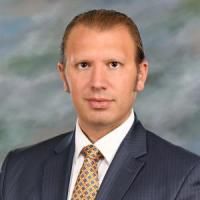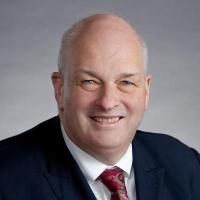Younger Patients Are Differentially Affected by Stiffness-Related Disability Following Adult Spinal Deformity Surgery.
Date
2019-08-31
Journal Title
Journal ISSN
Volume Title
Repository Usage Stats
views
downloads
Citation Stats
Attention Stats
Abstract
OBJECT:The LSDI assesses the impact of lumbar stiffness on activities of daily living. We hypothesized that patients <60 years-old would perceive greater lumbar stiffness-related functional limitation following fusion for adult spinal deformity. METHODS:Patients completed the LSDI and SRS-22r questionnaires preoperatively and at 2 years postoperatively. The primary independent variable was patient age <60 vs. ≥60 years-old. Multivariable regression analyses were utilized. RESULTS:In total, 267 patients were analyzed. Patients <60 years-old (51.3%) and ≥60 years-old (48.7%) were evenly represented. In bivariable analysis, patients <60 years-old exhibited lower LSDI at baseline vs. patients ≥60 years-old (25.7 vs. 35.5, β -9.8, p<0.0001), but a directionally smaller difference at 2-years (26.4 vs. 32.3, β -5.8, p=0.0147). LSDI was associated with lower SRS-22r total score among both patients <60 and ≥60 years-old, at both baseline and 2-years (all p<0.0001); the association was stronger among patients <60 vs. ≥60 years-old at 2 years. LSDI was associated with SRS satisfaction scores at 2 years among patients <60 years-old (p<0.0001), but not patients ≥60 years-old (p=0.2250). The difference in SRS satisfaction per unit LSDI between patients <60 years-old and >60 years-old was significant (p=0.0021). CONCLUSIONS:Among ASD patients managed operatively, higher LSDI was associated with inferior SRS-22r total score and satisfaction at 2 years postoperatively. The association between increased LSDI and worse PROMs was greater among patients <60 vs. ≥60 years old. Pre-operative counseling is needed for patients <60 undergoing ASD surgery regarding the effects that lumbar stiffness may have on post-operative function and satisfaction.
Type
Department
Description
Provenance
Subjects
Citation
Permalink
Published Version (Please cite this version)
Publication Info
Durand, Wesley M, Alan H Daniels, David K Hamilton, Peter G Passias, Han Jo Kim, Themistocles Protopsaltis, Virginie Lafage, Justin S Smith, et al. (2019). Younger Patients Are Differentially Affected by Stiffness-Related Disability Following Adult Spinal Deformity Surgery. World neurosurgery. 10.1016/j.wneu.2019.08.169 Retrieved from https://hdl.handle.net/10161/19377.
This is constructed from limited available data and may be imprecise. To cite this article, please review & use the official citation provided by the journal.
Collections
Scholars@Duke

Peter Passias
Throughout my medical career, I have remained dedicated to improving my patients' quality of life. As a specialist in adult cervical and spinal deformity surgery, I understand the significant impact our interventions have on individuals suffering from debilitating pain and physical and mental health challenges. Spinal deformity surgery merges the complexities of spinal biomechanics with the needs of an aging population. My research focuses on spinal alignment, biomechanics, innovative surgical techniques, and health economics to ensure value-based care that enhances patient outcomes.

Christopher Ignatius Shaffrey
I have more than 25 years of experience treating patients of all ages with spinal disorders. I have had an interest in the management of spinal disorders since starting my medical education. I performed residencies in both orthopaedic surgery and neurosurgery to gain a comprehensive understanding of the entire range of spinal disorders. My goal has been to find innovative ways to manage the range of spinal conditions, straightforward to complex. I have a focus on managing patients with complex spinal disorders. My patient evaluation and management philosophy is to provide engaged, compassionate care that focuses on providing the simplest and least aggressive treatment option for a particular condition. In many cases, non-operative treatment options exist to improve a patient’s symptoms. I have been actively engaged in clinical research to find the best ways to manage spinal disorders in order to achieve better results with fewer complications.
Unless otherwise indicated, scholarly articles published by Duke faculty members are made available here with a CC-BY-NC (Creative Commons Attribution Non-Commercial) license, as enabled by the Duke Open Access Policy. If you wish to use the materials in ways not already permitted under CC-BY-NC, please consult the copyright owner. Other materials are made available here through the author’s grant of a non-exclusive license to make their work openly accessible.
